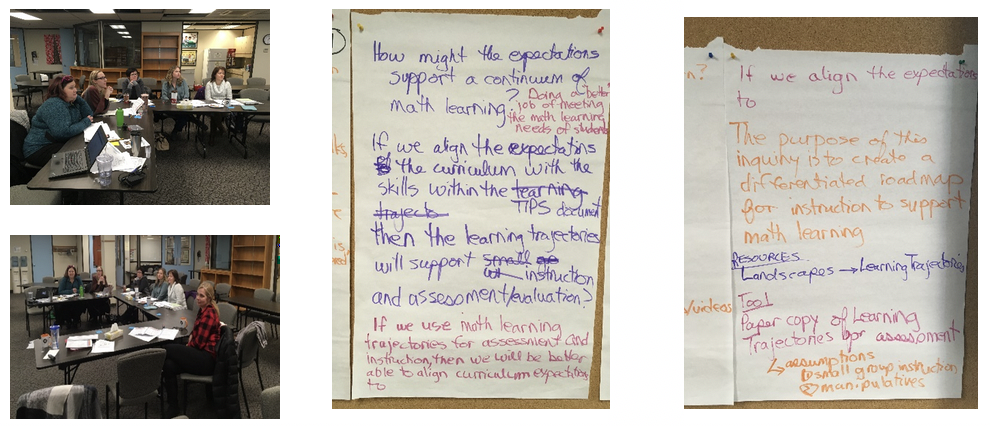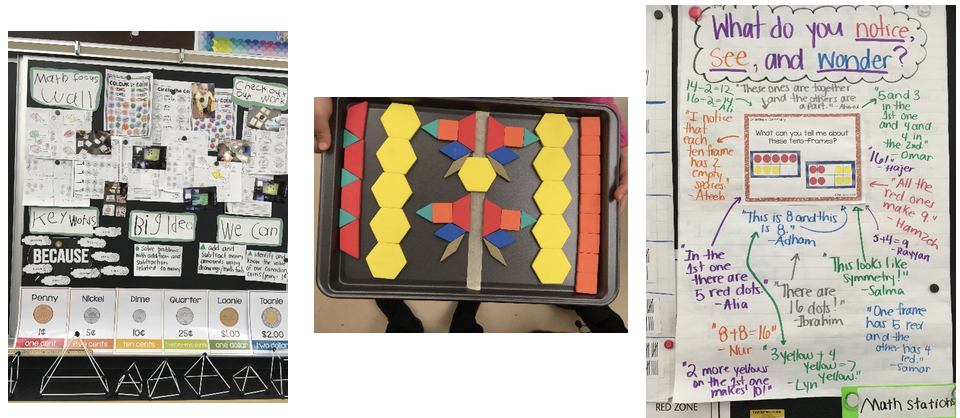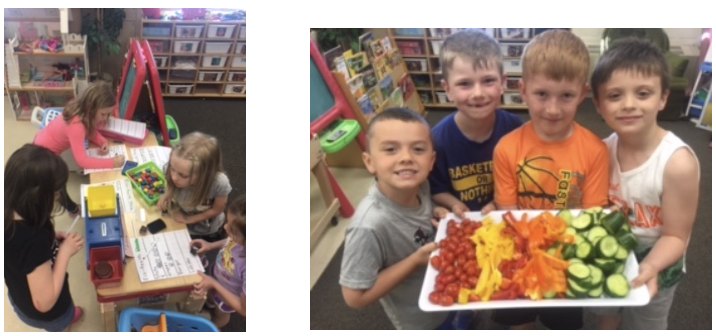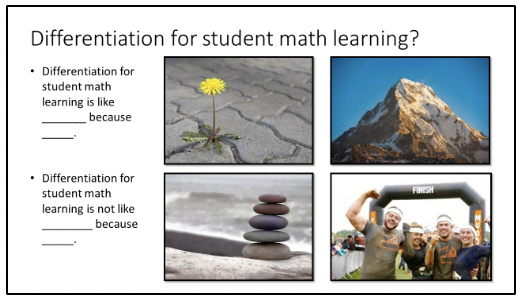The Early Years Project within the Critical Transitions in Mathematics Education Community of Practice has been working on two major initiatives:
- The Kindergarten/Grade 1 Learning Trajectories initiative from the Greater Essex County District School Board; and,
- A collaborative inquiry with 8 Kindergarten teachers in the Kawartha Pine Ridge District School Board that is supported by Dr. Douglas Clements, Kennedy Endowed Chair and Professor at the University of Denver.
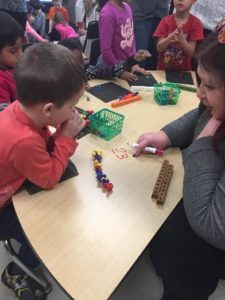 In the first project, the Early Years CoP is supporting Action Research in six Kindergarten/Grade 1 classes to align Kindergarten expectations (content and conceptual) with the current Grade 1 to 3 Curriculum overview that is available of the Tips4Math website. The GECDSB project is also building on work which saw GECDSB’s Kindergarten/ Grade 1 combined class educators compare and align overall curriculum expectations using the Kindergarten Program document and the Grade One curriculum documents. The team of Kindergarten/Grade 1 educators in collaboration with the Board’s K-3 Leadership Committee is also exploring how the pedagogical approaches outlined in How Does Learning Happen (2014) might be imagined and enacted in mathematical learning within the context of a K-1 combined class. The product
In the first project, the Early Years CoP is supporting Action Research in six Kindergarten/Grade 1 classes to align Kindergarten expectations (content and conceptual) with the current Grade 1 to 3 Curriculum overview that is available of the Tips4Math website. The GECDSB project is also building on work which saw GECDSB’s Kindergarten/ Grade 1 combined class educators compare and align overall curriculum expectations using the Kindergarten Program document and the Grade One curriculum documents. The team of Kindergarten/Grade 1 educators in collaboration with the Board’s K-3 Leadership Committee is also exploring how the pedagogical approaches outlined in How Does Learning Happen (2014) might be imagined and enacted in mathematical learning within the context of a K-1 combined class. The product 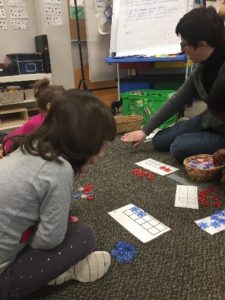 will be a document that aligns the specific expectations for Mathematics and highlights the Conceptual Understandings from the Kindergarten Program document that align to the learning in Grades 1 to 3. Additionally, the K/1 Curriculum document will be aligned to the Learning Trajectories developed by Clements and Samara.
will be a document that aligns the specific expectations for Mathematics and highlights the Conceptual Understandings from the Kindergarten Program document that align to the learning in Grades 1 to 3. Additionally, the K/1 Curriculum document will be aligned to the Learning Trajectories developed by Clements and Samara.
In the second project, a team of 8 Kindergarten educators is taking part in a collaborative inquiry (CI) about instructional practices that support early geometry and spatial reasoning in kindergarten. The CI involves developing and testing lesson studies in two teams of four. Time will be spent reflecting and refining lessons. The CI will use the learning trajectories developed by Clements & Sarama as a tool to develop and assess the effectiveness of their lesson studies.
A report from the GEDSB about their collaborative inquiry activities last year can be read here.
In August 2019, the Early Years Critical Transition Team will host a professional development conference for primary teachers at Queen’s University. The conference will include a keynote by Dr. Clements and workshops with leading Ontario Learning Trajectories practitioners: Angeline Humber (Greater Essex), Edward Schroeter (Kawartha Pine Ridge) as well as classroom teachers from the project schools. The resources in preparation to align the Learning Trajectories pathways with the Ontario curriculum for Kindergarten and Primary Division mathematics and training will be a focus of the conference.
There have been two recent publications from the work of the Early Years Critical Transition Team:
An info-graphic summary of the paper is available here.
A paper that describes the first phase of the collaborative inquiry with the Kawartha Pine Ridge District School Board (Instructional Practices That Support Early Geometry and Spatial Reasoning in Kindergarten: A Collaborative Inquiry) has recently been submitted for publication to the Canadian Journal of Science, Mathematics, and Technology Education, and an info-graphic about learning trajectories in Kindergarten/Grade 1 mathematics is in preparation.

